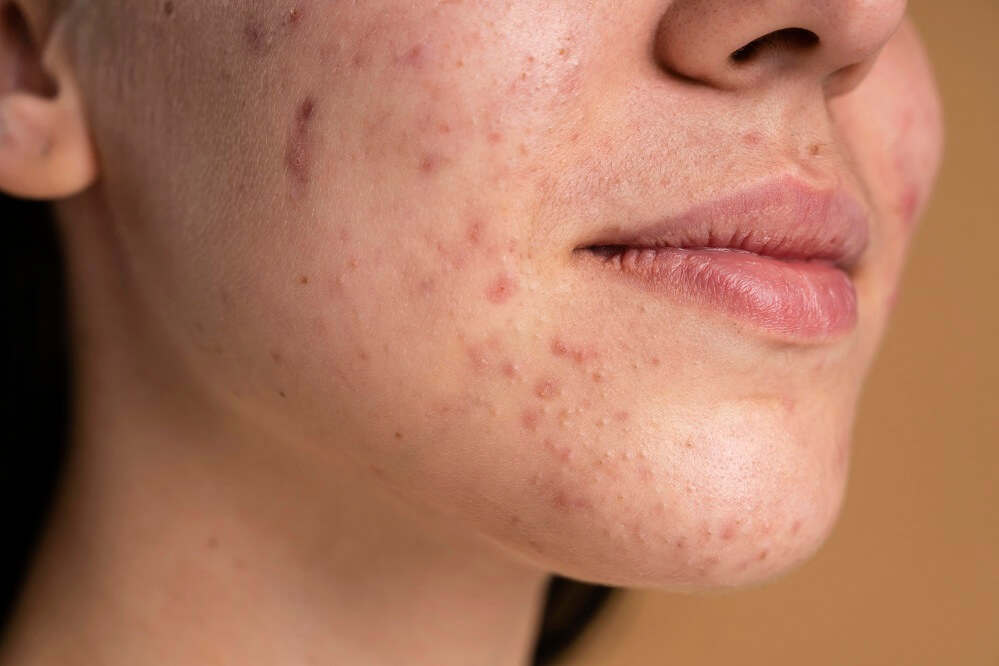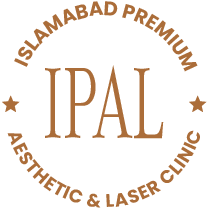
Acne is a common skin problem that appears on the top of the skin in the form of breakouts, whiteheads, and blackheads. The clogged pores in the skin block the oil and bacteria, which causes acne. The breakouts lead the skin to replace the damaged tissues with new ones. When our skin produces too much or too little of these cells to repair, acne scars occur. When excess tissues are created, it is known as a hypertrophic scar, and a lack of these tissues is known as an atrophic scar. There are many ways to acne scar care, one of them is using creams. You may find acne scar removal creams in Pakistan but for deep scars they are ineffective.
Using different acne treatments can be frustrating. There are various techniques to treat acne scars, which are used on the basis of types of acne. At IPAL, the experts have been helping patients to treat acne and acne scars.
The acne scars can be treated and prevented as well by following different treatments. In this article, we will discuss the best treatment for acne scars.
How to prevent acne scar?
The acne scars can be prevented by acting upon a skincare routine. Most of the acne is caused by popping the breakout, and keeping your hand away from the skin is the best policy in this regard. Touching stimulates more oil production and acne, which increases the risk of scarring. It’s sometimes hard to keep yourself from popping the blackhead or a pimple as you want to eliminate the pain right away, but trust this is magical. Acne scar treatment at home may be risky or lead to another skin issue.
Treatments for acne scars
There are various available treatments for acne scars. As we know, acne scars are stubborn, and to eliminate them, not every treatment is best for everyone. A single or combination of different treatments can help in soothing the scars. Let’s discover these treatments and their effectiveness.
Skincare routine: Effective skin care can be a game changer in preventing and treating acne scars. Using sunblock and creams containing azelaic acid is helpful in treating scars. You will easily find the best cream for acne scars and dark spots in Pakistan.
Collagen Injections: Collagen filler injections can be helpful in dealing with acne scars as they make them less noticeable. This treatment needs to be repeated after some time. This may change the natural skin color.
Injecting steroids: Injecting steroids into the affected areas may reduce the appearance of scars.
Skin Resurfacing: The skin resurfacing technique, a laser beam, is used to treat acne scars. It may have side effects for people with darker skin.
Radiofrequency Treatments: Radiofrequency devices are used to treat scars without damaging the top layer of skin.
Dermabrasion: The top layer of skin is removed with the help of brushing or other equipment. The scars on the top are permanently removed, making the deeper ones less noticeable.
Chemical Peel: In a chemical peel, a solution can be applied to remove the top layer of your skin, which reduces the scars.
Surgery: The scars can be treated surgically by making small cuts on each scar and stitching them. This procedure is known as punch excision.
Injecting Botox: Injecting Botox can be helpful to relax the skin surrounding the scar. It relieves the skin and makes the scar appear less.
Acne scars are frustrating, but the treatments given above may reduce them or remove them permanently. The appearance of scars can be reduced with effective treatment. The best way is to prevent acne scars and stop popping the pimples.
Frequently Asked Questions
How long does it take for acne scars to fade?
In most cases, if the scars are mild, they go on their own after a few weeks or months. But if they are deep and untreated for a long time, then cosmetic procedures may be required. Laser treatments are effective in treating deep scars.
How long do acne scars last?
The acne scar may last from weeks to months if it is mild. Severe acne scars are usually permanent if not treated.
What is the best acne scar removal treatment?
Chemical peel is considered an effective acne removal treatment used for mild to severe scars. Filler injections, microneedling, and laser treatments are suggested by most dermatologists.

